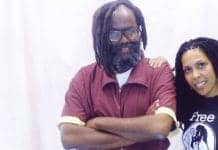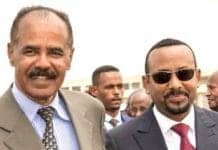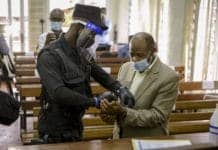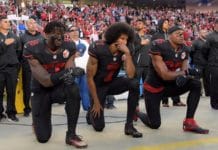by Ann Garrison
French translation by Marcelline Nduwamungu follows
KPFA Weekend News broadcast Oct. 26, 2014
Rwandan political prisoner Victoire Ingabire has filed an appeal to the African Court of Human and People’s Rights in Arusha, Tanzania.
Transcript
KPFA Weekend News Anchor: Rwandan political prisoner Victoire Ingabire’s appeal of her 15 year sentence has been accepted by the African Court of Human and People’s Rights. KPFA’s Ann Garrison has the story.
KPFA/Ann Garrison: Rwandan political prisoner Victoire Ingabire has been compared to Nelson Mandela, Aung San Suu Kyii, and even Patrice Lumumba because of the scale of her challenge to existing belief and power structures that has led to the death and disinheritance of millions in the Great Lakes Region of Africa, most of all in Rwanda and the Democratic Republic of the Congo. After becoming the leader of the Rwandan Diaspora’s opposition to the authoritarian regime of Rwandan President Paul Kagame, she returned to Rwanda to run against him in the 2010 election. She was instead placed under house arrest shortly after her return and is now serving a 15 year sentence. This week the African Court of Human and People’s Rights agreed to hear her case on appeal, in Arusha, Tanzania.
Marcelline Nduwamungu, a Rwandan exile in Belgium, and a member of the Women’s International Network for Democracy and Peace, said that many Rwandans in the Diaspora speak and write against the regime, but Victoire Ingabire dared to return and challenge President Kagame directly, in Rwanda.

Marcelline Nduwamungu: Her struggle is very important for us, because all of us, we are outside the country. We speak, we talk, we write, but she decided to go and to confront Mr. Kagame in Rwanda.
KPFA: Nduwamungu said that Victoire’s courage was also extraordinary because a number of men had said that they would return to Rwanda with her, but in the end found reason not to go, so she decided to go alone.
BK Kumbi, a Congolese Swiss activist said that Victoire should be an inspiration for all African people.
BK Kumbi: She’s a symbol of justice. And all she’s doing, all her fight, is just telling us that there can’t be peace without justice, and she doesn’t give up. And I think that she invites us all to reflect on that. In Africa, it’s all trouble and we always have a feeling that there is no justice, but there are people who embody that idea of justice. And I think that as Africans, as a whole, we should really really support that woman because we have a very special person and a true leader.
This week the African Court of Human and People’s Rights agreed to hear Rwandan political prisoner Victoire Ingabire’s case on appeal, in Arusha, Tanzania.
KPFA: Ingabire was convicted of inspiring Rwandans to rise up against the state, and quote unquote “genocide denial,” which means disagreeing with the official history of the genocide that is legally enforced in Rwanda. She said that there Hutus and Tutsis were both extremists and victims during the mass killing in Rwanda in 1994 and before and after, and that both sides must be allowed to mourn and commemorate their dead. That description was recently affirmed by the controversial new BBC documentary, “Rwanda: The Untold Story,” which so angered the Rwandan government that they canceled BBC broadcasts in the Kinyarwanda language and indicted the BBC itself for – quote unquote – “genocide denial. “
For Pacifica, KPFA and AfrobeatRadio, I’m Ann Garrison.
The BBC documentary first aired Oct. 1, 2014:
Victoire Ingabire à la Cour africaine des Droits de l’Homme et des Peuples
La prisonnière politique rwandaise Victoire Ingabire a saisi la Cour africaine des Droits de l’Homme et des Peuples (CADHP) située à Arusha, en Tanzanie.
Retranscription (ou compte-rendu) :
Présentateur du journal de KPFA Weekend: La plainte de la prisonnière politique rwandaise Victoire Ingabire contre sa peine d’emprisonnement de 15 ans a été acceptée par la Cour africaine des Droits de l’Homme et des Peuples. Ann Garrison de KPFA vous livre toute l’histoire.
KPFA/Ann Garrison: La prisonnière politique rwandaise Victoire Ingabire a souvent été comparée à Nelson Mandela, Aung San Suu Kyii, et même à Patrice Lumumba, de par l’ampleur de sa détermination à bousculer les tabous sur le communément admis et les structures du pouvoir qui ont conduit à la mort et au dépouillement de millions de personnes dans la Région des Grands Lacs africains, la majorité d’entre eux étant rwandais et congolais (RDC).
Après avoir été la chef de file de l’opposition rwandaise en exil, Victoire Ingabire Umuhoza est retournée au Rwanda en 2010 afin de se présenter aux élections présidentielles. A la place, elle a été assignée à résidence peu après son arrivée au Rwanda, puis elle a été condamnée à 15 ans de prison. Cette semaine, la Cour africaine des Droits de l’Homme et des Peuples sise à Arusha (Tanzanie) a accepté d’examiner sa plainte en appel.
Marcelline Nduwamungu, une exilée rwandaise vivant en Belgique et membre du Réseau international des Femmes pour la Démocratie et la Paix, a déclaré que la diaspora rwandaise écrit et fustige les agissements du régime à distance mais Victoire Ingabire a osé rentrer au pays en vue de dire de visu au Président Kagame ce qu’elle lui reproche.
Marcelline Nduwamungu : Sa lutte revêt une importance capitale pour nous tous. Nous sommes en dehors du pays. Nous dénonçons, nous écrivons mais elle, elle a décidé d’affronter Kagame directement.
KPFA: Nduwamungu trouve que le courage de Victoire est incommensurable, elle qui a défié les hommes qui étaient censés partir avec elle et qui, à la dernière minute, ont trouvé des raisons de ne plus partir.
BK Kumbi, une activiste Suisse et congolaise, a dit que Victoire devrait être une source d’inspiration pour tout le peuple africain.
BK Kumbi: Elle symbolise la justice. Tout ce qu’elle fait, tout son combat nous apprennent qu’il ne peut pas y avoir de paix sans la justice et elle tient bon. Et je pense qu’elle nous invite à avoir une réflexion sur ce qui précède. En Afrique, il y a beaucoup de problèmes et nous avons toujours ce sentiment qu’il n’y a pas de justice, mais il y a de ces gens qui incarnent cette idée de justice. Et je pense que nous les Africains, devrions soutenir cette dame car nous avons en elle une icône et une vraie leader.
KPFA: Ingabire a été condamnée pour incitation au soulèvement contre l’Etat et la « négation du génocide », ce qui veut clairement dire qu’elle n’est pas d’accord avec l’histoire officielle du génocide telle que légalement racontée au Rwanda. Elle a dit qu’autant les hutu que les tutsi ont été extrémistes et victimes, avant, pendant et après les massacres de 1994 et que tout le monde doit être autorisé à pleurer et à se souvenir de ses morts.
Ce point de vue a été récemment réaffirmé par le documentaire controversé de la BBC « Rwanda, l’histoire non contée », qui a tellement fâché les autorités rwandaises jusqu’à ce qu’elles suppriment les émissions de la BBC en kinyarwanda et ont été même à traiter la BBC elle-même de « négationniste du génocide ».
Pour Pacifica, KPFA et AfrobeatRadio, je suis Ann Garrison.
Le documentaire de la BBC diffusé pour la première fois le 1er octobre 2014:

 Store
Store












